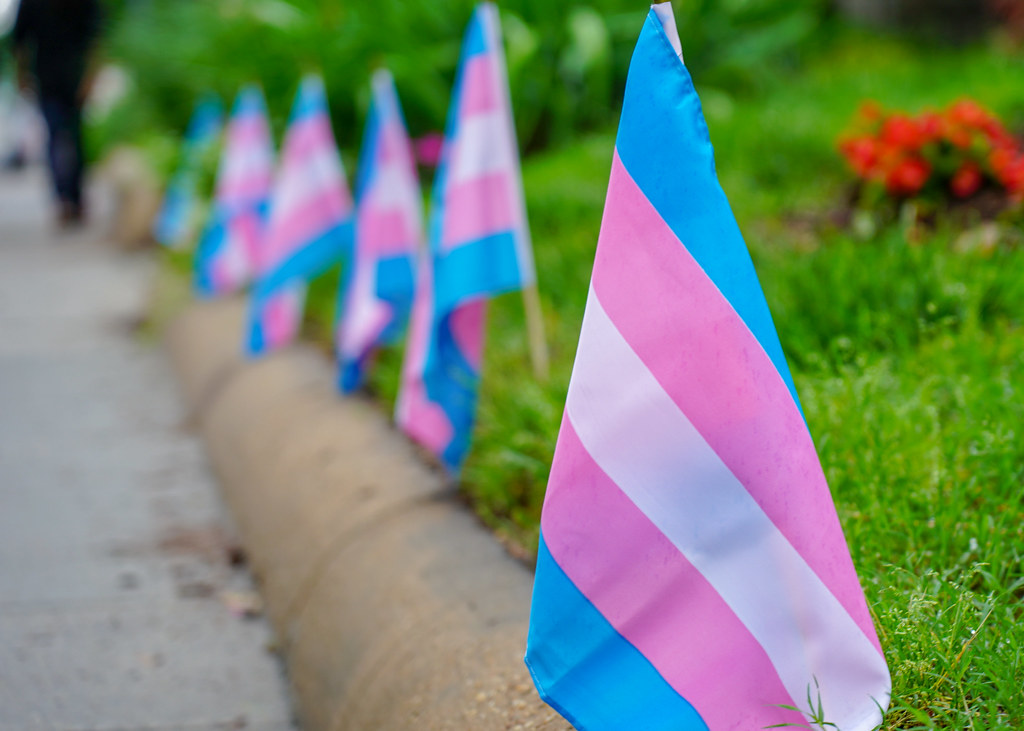Comrade Daisy Ditchburn writes about their experiences participating in Our March, celebrating the kaupapa of OurPride, through liberating and celebrating with Auckland’s rainbow communities. First started in 2019 in response to the acceptance of uniformed police officers in Pride and rejuvenating the long history of struggle for LGBTQ rights.
It was with smug satisfaction that commenters and co-workers observed the rather low turn out to 2019s Our March. Never mind that 3,000 participants represent an incredible turn out, the lack of glitz and glamour, floats and adoring crowds that defined past years “pride” parades were enough, in their eyes, to deem the event a failure. As my co-worker and I picked up what little rubbish there was he informed me, with utter certainty, that Our March had been a mistake never to be repeated. Oh, how wrong he was.
To understand how this came to be one must understand the context from which it sprung. A struggle against acceptability politics and pinkwashing, of class division and ultimately of pride. It all began with a simple decision and a humble request. That uniformed police officers, due both to historic and ongoing contemporary acts of oppression and discrimination against the LGBT+ community, would not participate in the Pride Parade. Officers could still participate out of uniform, but their institution symbolising our oppression could not be represented at the event where we celebrate our community and liberation, partial though it may be.
This simple request unleashed a tirade of criticism that showed the truth of our “inclusive” society. Corporations who before proudly trumpeted their support of and participation in the Pride Parade where aghast and withdrew their involvement. Media commentators lamented the “politicisation” of the parade. The tale of our acceptance was shown as a lie. We were accepted, so long as we played by the rules. Our pride was welcome so long as it upheld and valorised the very institutions and corporations that cause working class queer people so much hardship and misery. As soon as we asked that things be run our way, in the interests of our community, that was too much.
Our March ran afoul of the politics of respectability. The place in which forms of dissent are acceptable in the eyes of the ruling class. It is why environmental radicalism is channeled towards NGOs and why those who do not comply, such as indigenous activists and others who use direct action tactics, face the full wrath of the bourgeois state. Under the rules of respectability queer identity was welcome, so long as it was performed for adoring crowds, with corporate sponsors able to signal their inclusivity and the police there as our best of friends.
By rejecting the politics of respectability Our March had not only overstepped the bounds of what was acceptable but also what was possible. Our March simply had to fail, surely anyone who “got political” would push away the ordinary folk who just wanted to see a Santa parade but with rainbows and drag instead of reindeer and elves. The incredible turn out of 3,000 people was overlooked. My co-worker echoed the media in proclaiming the march a failure that could not be repeated. Fast forward a year and I am excited both as a queer person and as a worker to participate in what is truly Our March.
While the vitriol had subsided the class divisions were still plainly clear. A separate “pride” body had established themselves, organising their own parade. A parade with all the trappings of acceptability. Corporate floats and a police contingent, performing for adoring crowds as they make their way down Ponsonby Road. There was another development. In the week prior to the march evangelicals had hounded pedestrians on Queen Street. Demanding they state what the rainbow means to them and how they feel about what was going on in Aotea Square (read queer people happily existing together). This assortment of American zealots, racist white South Africans, pious teens who had never actually been in a church, and pacific islanders from “Bishop” Tamaki’s flock were determined to crash our parade. Everything was stacked against us then, so how did we fare?
Despite the proclamation of our failure and literal damnation Our March was truly a vindication of standing up for our community against the constraints imposed by the powers that be. Over 7,000 people participated more than double from the previous year. From my vantage point at the back of the march I watched as the glorious gay tide washed down the hill from Albert Park filling the streets with colour and chants. It was raucous and unapologetic.
So, while some random person preached to me of my sin, I could only help but smile. Before me I saw the queer community in all its pride and diversity. Cook Islanders speaking up demanding an end to homophobic colonial laws. Children proudly dressed in rainbows, waving transgender and non-binary flags, and wearing pronoun stickers. Defying a society that proclaims our identity is only suitable for adults. Instead of playing nice with police and corporations we proudly defied respectability.
The evangelicals preaching of damnation soon found themselves surrounded by a rainbow of queer people, from all walks of life and of all ages. The chorus of Highway to Hell was heard and above it all in ultimate defiance a placard read: BE GAY, DO CRIMES









